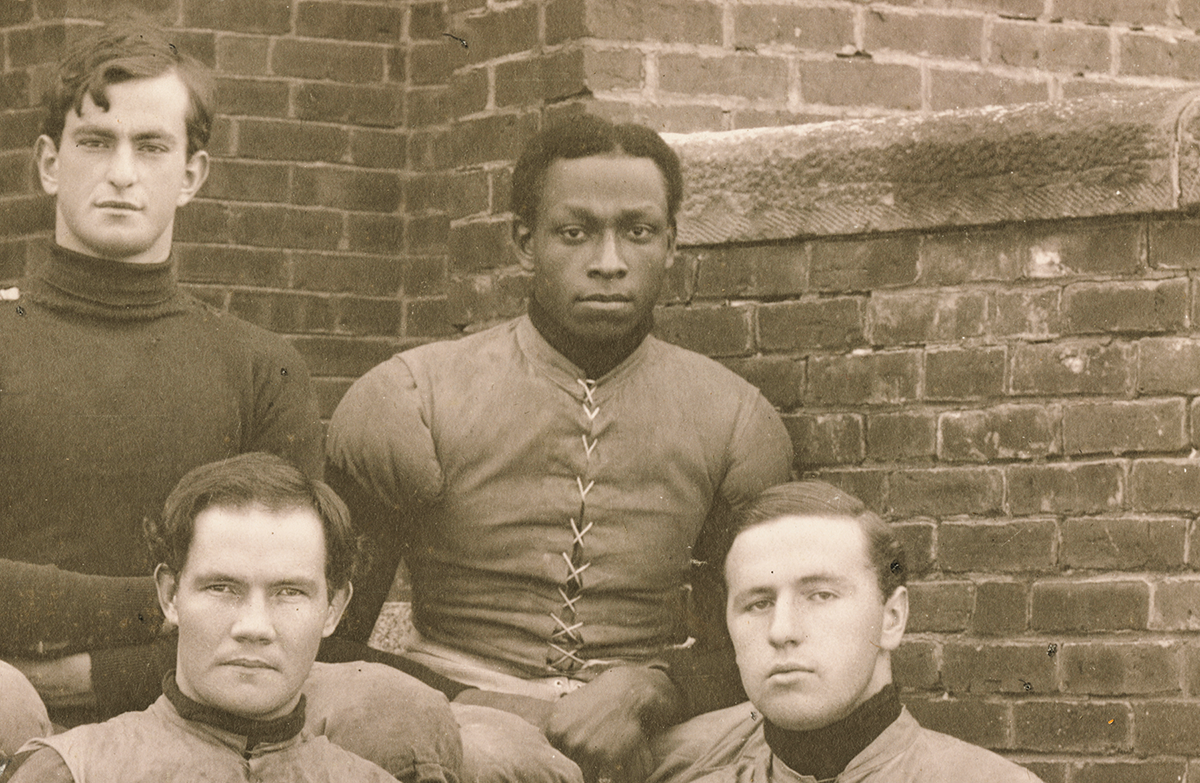
Marshall arrived at Exeter with minimal resources as a 10th grader in 1901 to prepare for college. In Marshall’s time, Black students encountered a difficult social experience at the Academy. For instance, one of Marshall’s housemates, the Black poet Charles Frederick White, a member of the class of 1907 for a short time, later wrote that despite being “exceptionally well and brotherly treated by the faculty [and] other non-Negro-hating boys,” he was met with “southern prejudice,” by a particular group of threatening students, which cued his departure prior to graduation.
Indeed, during the 1902 spring track season, Marshall and another Black member of the team were not welcome to eat at the training table with their white teammates, provoking them to withdraw from the team. The Boston Globe reported that while many in town supported the protest, “In student circles … feeling against them [was] very bitter, and in the march of the school from the campus after the [track] meet, they were treated with contumely.”
The Globe contended that Marshall’s treatment was “in direct variance with the Exeter spirit,” given that in previous years Black athletes had typically eaten at team training tables.
Others who lived with Marshall in the segregated J.W. Field’s House succeeded at Exeter, leading to impressive careers. Marshall’s housemates included two members of the class of 1904: his lifelong friend Eugene Clark of Washington, D.C., a preeminent educator in Black schools, and Newlyn Cashin, a distinguished physician in his native Alabama. In addition, Fenwick Watkins, class of 1905, from Burlington, Vermont, who starred in football, basketball and baseball at the University of Vermont, had a successful career in coaching and real estate in North Dakota; and Benjamin Seldon, class of 1907, from New Jersey, was an early promoter of Pan-Africanism and a regular collaborator with W.E.B. Du Bois. Seldon conveyed lifelong gratitude to the Academy for helping him become a trailblazing educator.
Marshall persevered during his time at Exeter. A strong student, he became one of the top athletes in the school and served on the PEA Athletic Association, the student voice for athletics at the time. In competition, Marshall rejoined the track team and found renown on campus for his exploits, becoming the school record-holder in both the shot put and discus in 1903. Further, Marshall was a standout on the football team, earning a spot on the “Academy Eleven” for all three of his years at Exeter, the only player to do so during his time.
During the spring of 1903, the team met to determine its captain and Marshall emerged as the top choice. Marshall’s selection was monumental for the Academy as well as the American sports scene of the time because Black players were a rarity on major athletic teams. Though Black players began playing on the Exeter football team as early as 1893, none had ascended to the role of captain before Marshall, moving news agencies around the country to pick up the story. “Colored Man Elected Head of Exeter Football Eleven — He is Popular Here,” The Boston Globe reported on June 6, 1903. The following day The New York Times wrote, “Ernest J. Marshall, ’04, of Baltimore … is the only colored boy to be honored with a captaincy of an athletic team at Exeter,” and The Trenton Evening Times declared, “Negro Boy Captains Exeter.”


